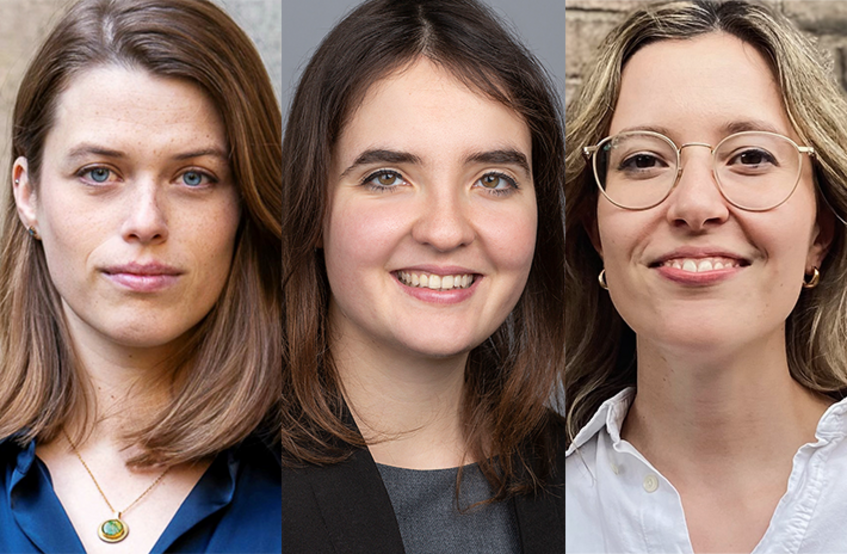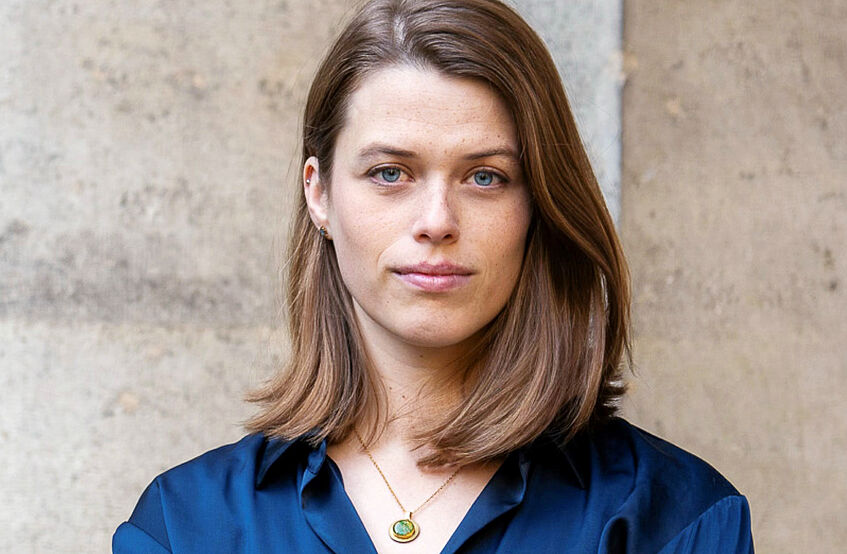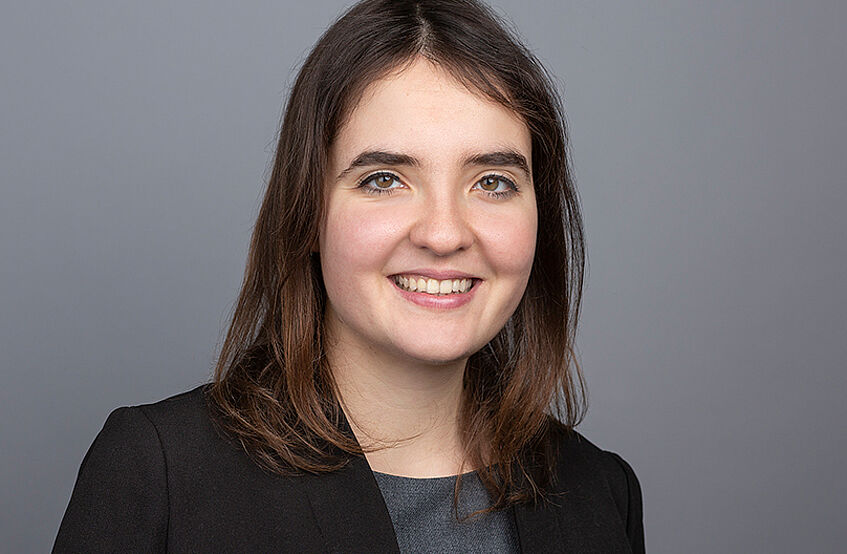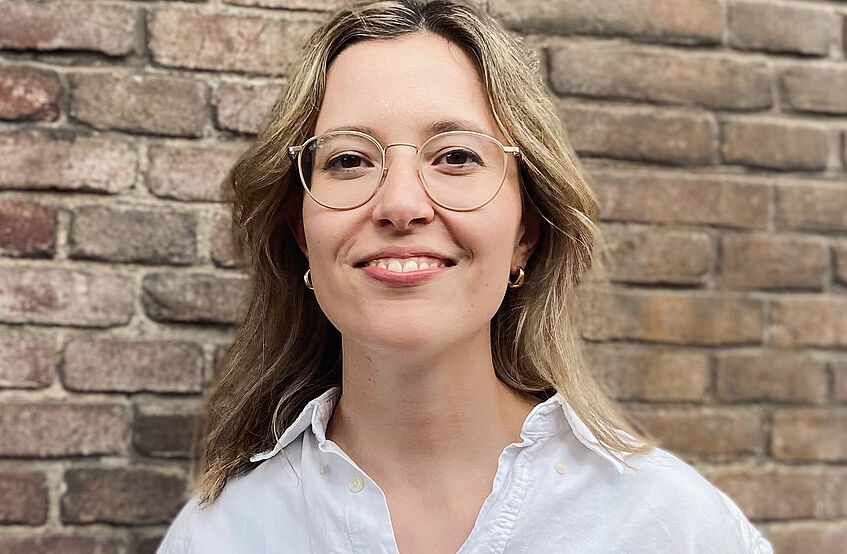sowi:doc Awards 2024
Each year, the Faculty of Social Sciences awards the sowi:doc Awards to doctoral graduates for their outstanding research contributions in the framework of their doctoral thesis. The Award aims at motivating doctoral graduates to pursue a career in academia.
The sowi:doc Awards for the academic year 2023/2024 are awarded to:

Hannah Greber
“Immersive journalism – The future of the news?”
Research field: communication

Imagine being able to step inside a news story, experiencing it as if you were there in person. This is the promise of immersive journalism, which combines inclusive and interactive technology, such as Virtual Reality, with immersive narratives to create an immersive, first-person, and often emotionally engaging news experience. Initially celebrated as a potential solution to the economic challenges journalism is facing, and as a response to the gradual shift toward audience-centric, emotional, and advocacy journalism, immersive journalism fell short of these high expectations, leading to disillusionment. At this critical juncture, this thesis assesses immersive journalism by investigating two key questions: first, whether the audience would appreciate this type of journalism, and second, whether immersive journalism fulfills expectations for democratically beneficial effects. The cumulative thesis is structured around one theoretical chapter and five empirical studies, using multi-mixed methods to explore these two questions. Results indicate that the audience seems to appreciate the inclusive technology and the sense of presence that immersive journalism offers, both of which are closely tied to the use of Virtual Reality. However, they also seem to be ambivalent towards the oftentimes emotionally intense experience of immersive journalism, and struggle to comprehend it as a journalistic genre. From an effects perspective rooted within an understanding of journalism’s role vis-à-vis democracy, immersive journalism may not yet be well-suited for fulfilling democratic journalistic responsibilities, such as informing and mobilizing citizens. However, novel findings related to episodic memory offer intriguing possibilities that require further exploration. Overall, it seems that immersive journalism’s current format still requires significant improvement to achieve broader democratic benefits. Therefore, this thesis contributes critical insights and provides practical guidelines for advancing immersive journalism in the future.
Hannah Greber defended her dissertation in May 2024 at the Faculty of Social Sciences, University of Vienna. Since July 2024, she is a postdoctoral researcher at the Department of Communication Science, University of Vienna. Her research explores the impact of emerging technology on political communication, with a specific focus on the intersection of Artificial Intelligence, emotionality, and democracy..
Contact: hannah.greber@univie.ac.at
Ina Tessnow-von Wysocki
“Science-policy interfaces for ocean protection
The case of the international negotiations for the conservation and sustainable use of marine biodiversity of areas beyond national jurisdiction (BBNJ)”
Research field: political science

On March 4th, 2023, the United Nations finalised a new ocean treaty. The new legally binding agreement seeks to ensure the conservation and sustainable use of marine biodiversity of areas beyond national jurisdiction (BBNJ). This dissertation opens the black box of how and by whom science is produced, integrated and used in the BBNJ process, how science and policy interrelate at the sites of agreement-making, and by which factors this relationship is conditioned.
Science-policy interfaces are analysed in a three-stage process, understanding a) the academic output, b) practices of scientific input and c) the use of science within the BBNJ negotiations. A comprehensive literature review shows that publication output has a Global North bias and suggestions by the BBNJ scientific community were only incorporated to a limited extent into the draft texts. Collaborative event ethnography is used to study the pathways of scientific input into the negotiations by identifying the actors and their practices in science-policy interfaces. Results demonstrate that a variety of actors contribute to the inclusion of science into the political discussions and an empirical case shows that science and policy are intertwined by jointly contributing to science production in the framework of the BBNJ negotiations. At one specific scientific concept (ecological connectivity), the use of science in the negotiations is explored. Results point to a strategic use of science by BBNJ actors and the possibility for scientific concepts to put into question existing legal frameworks. It shows that the use of science in international negotiations is embedded in value judgements and cannot completely be separated from politics. The thesis provides a manual and new methodological approach for studying science-policy interfaces in intergovernmental negotiations and identifies the negotiation stage as an origin of science production. Overall results show the need of scientific input into the negotiation stage and point to current inequalities in producing and accessing knowledge. The findings stimulate debate on to what ends and to whose advantage science-policy interactions are currently taking place and encourage adaptations to UN processes for greater inclusion and diversity of stakeholders, different disciplines and forms of knowledge to be considered in UN negotiations.
Ina Tessnow-von Wysocki defended her dissertation in March 2024 at the Faculty of Social Sciences of the University of Vienna. Since April 2024, she works as a postdoctoral researcher at the Australian National Centre for Ocean Resources and Security at the University of Wollongong, Australia. Her research focuses on ocean equity and multi-jurisdictional coherence in ocean governance.
Contact: inatvw@uow.edu.au
Teresa Weikmann
“Getting real with fakes: Characteristics and consequences of ‘deepfakes’ in democracies”
Research field: communication

'Deepfakes' are hyper-realistic audio-visual manipulations based on artificial intelligence that can make it appear as though people are saying things they never said. As such, they have entered the political communication landscape, posing a potentially perilous form of disinformation; they threaten democracies by presenting seemingly visual evidence of events that never occurred. However, despite widespread concerns about deepfakes, a comprehensive understanding of their distinctiveness and their impact on media practitioners and citizens remains uncertain. Through a multi-method approach involving a literature synthesis, expert interviews, and two survey experiments, this dissertation investigates the unique challenges posed by deepfakes. The core findings show that deepfakes are just one of many forms that visual disinformation can take. At present, deepfakes have limited impact on fact-checking procedures and are viewed as a future challenge, while other types of misleading images are seen as more disruptive. The experiments conducted show that, while deepfakes may not always be deemed credible, they can still lead to misperceptions about a portrayed politician and negative attitudes towards them. Furthermore, after revealing to individuals that they have been deceived by a deepfake, they tend to attribute less credibility to visual media in general, suggesting that—to some extent—seeing may indeed no longer mean believing in the age of deepfakes.
Teresa Weikmann defended her dissertation in April 2024 at the Faculty of Social Sciences of the University of Vienna. Since September 2024, she has worked as a postdoctoral researcher in the Amsterdam School of Communication Research. She is also involved in the BENEDMO project, an EU-funded initiative focused on countering disinformation. Her research interests include visual disinformation, fact-checking and visual political communication in general.
Contact: t.e.weikmann@uva.nl
